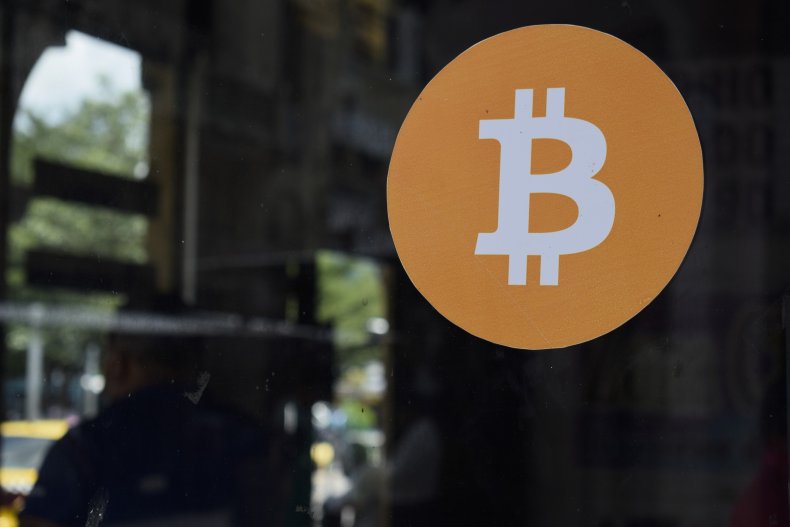Senators Debbie Stabenow (D-Mich.) and John Boozman (R-Ark.) just lately launched legislation that may clearly outline which regulators wield authority over two cornerstones of the cryptocurrency market—Bitcoin and Ethereum. Free-market advocates have purpose to wholeheartedly help the proposal.
It might be truthful to say that observers could be confused in regards to the laws’s impact, contemplating The Related Press characterized it because of lawmakers “who’ve run out of persistence” with the business’s “makes an attempt to reside out an unregulated, Libertarian, bank-free world.”
Nonetheless, that characterization is not fairly correct. Quite the opposite, the proposal would make it clear that the 2 tokens fall underneath the jurisdiction of the Commodity Futures Buying and selling Fee (CFTC). The transfer would implicitly take away authority from Securities and Change Fee (SEC) Chair Gary Gensler—a staunch ally to Senator Elizabeth Warren, a fellow Massachusetts Democrat.
Gensler has lamented on a couple of event that he believes the business is defined by “fraud, scams, and abuse,” a dour outlook that has contributed to heavy-handed and arguably unscrupulous techniques aimed toward undermining cryptocurrency improvement. The newest instance occurred in July when the Justice Division indicted a Coinbase worker on allegations of insider buying and selling. Gensler’s SEC rapidly jumped on the division’s coattails, asserting a complaint towards the worker for buying and selling “securities”—implying that Coinbase had unlawfully allowed the general public to commerce cryptocurrencies concerned within the case.
By no means thoughts—as Coinbase pointed out—that its course of for itemizing tokens is one “the SEC itself has reviewed.” Quite than pursuing authority by open legislative channels, the company opted as an alternative to make a refined, speedy seize for energy. “As an alternative of getting a dialogue with us in regards to the seven belongings on our platform, the SEC jumped on to litigation,” Coinbase famous.
CFTC Commissioner Caroline Pham used even stronger language, calling it “a placing instance of regulation by enforcement” in a statement. “Main questions are finest addressed by a clear course of that engages the general public … pursuant to the Administrative Process Act,” she added. “Regulatory readability comes from being out within the open, not at the hours of darkness.”

Kellys Portillo/APHOTOGRAFIA/Getty Photos
What was causing the transfer? Disdain for unfettered free markets might be one reply. One other reply could also be regulatory energy and the money that comes with it. Justifying the SEC’s 4,500 workers—and $2 billion price range—requires perpetually headline-grabbing work. And for these able to retire from public service, a broader menu of regulatory exercise means a wider vary of job alternatives within the non-public sector.
Does it come as any shock that it was Gensler who served as Hillary Clinton‘s chief monetary officer throughout her 2016 run for the presidency? It was his oversight that led the marketing campaign to a nice from the Federal Election Fee for misreporting bills associated to the Steele file.
However let’s transfer on from Gensler’s SEC for a second. As of early August, Bitcoin and Ethereum’s mixed worth stood above $600 million, making them a big function of worldwide markets. As a consequence, even those that decide to not put money into cryptocurrency stand to be affected if they’re subjected to the arbitrary whims of capricious regulators. That is one purpose the business has voiced help for shifting regulatory purview to the CFTC.
“We consider that cash like Ethereum require their very own digital classification,” American Blockchain PAC CEO Adelle Nazarian informed me in an interview. “To this point, there isn’t any framework that exists by the CFTC, Congress, Treasury Division, or the IRS. All of these want to come back collectively to determine a mutual definition.”
On the similar time, some with ground-level data of the business have been gradual to talk up. One developer, who didn’t want to be named, informed me that was true in his case as a result of he didn’t wish to put a “goal” on his again for the SEC.
The implications, in the event that they fail to pipe up, may show worse. “Ultimately, somebody goes to knock on their door,” Rutgers Enterprise College fintech professor Merav Ozair famous in an interview with a cryptocurrency website final month. “Take a look at what occurs to a whole lot of those that say one thing like, ‘Strive it and see,’ perhaps they will come after us and perhaps they do not.’ Ultimately, they arrive. They get fined hundreds of thousands of {dollars} they usually get closed down. Nobody desires to be in that state of affairs, so why not suppose forward?”
They’re fearful that somebody goes to knock on their door? It virtually seems like a narrative out of a Fyodor Dostoevsky novel about life within the Soviet Union. And it serves as an example why freedom-loving People ought to help shifting regulatory authority—notably over the rising crypto market—away from the SEC.
Rudy Takala is a political analyst who has labored as an editor or reporter in newsrooms that embody Fox Information, Mediaite, The Hill, The Every day Caller, and the Washington Examiner.
The views expressed on this article are the author’s personal.











